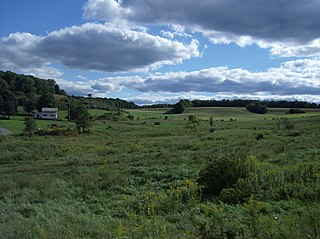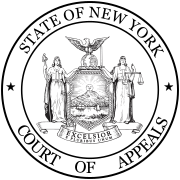Roe v. Wade, 410 U.S. 113 (1973), was a landmark decision of the U.S. Supreme Court in which the Court ruled that the Constitution of the United States generally protected a right to have an abortion. The decision struck down many abortion laws, and caused an ongoing abortion debate in the United States about whether, or to what extent, abortion should be legal, who should decide the legality of abortion, and what the role of moral and religious views in the political sphere should be. The decision also shaped debate concerning which methods the Supreme Court should use in constitutional adjudication.
Personality rights, sometimes referred to as the right of publicity, are rights for an individual to control the commercial use of their identity, such as name, image, likeness, or other unequivocal identifiers. They are generally considered as property rights, rather than personal rights, and so the validity of personality rights of publicity may survive the death of the individual to varying degrees, depending on the jurisdiction.
Lawrence v. Texas, 539 U.S. 558 (2003), is a landmark decision of the U.S. Supreme Court in which the Court ruled that sanctions including any form of criminal punishment to all forms of private, consensual non-procreative adult sexual activities between two individuals are unconstitutional. The Court reaffirmed the concept of a "right to privacy" that earlier cases had found the U.S. Constitution provides, even though it is not explicitly enumerated. It based its ruling on the notions of personal autonomy to define one's own relationships and of American traditions of non-interference with any or all forms of private sexual activities between consenting adults.

The Scottsboro Boys were nine African American male teenagers accused in Alabama of raping two white women in 1931. The landmark set of legal cases from this incident dealt with racism and the right to a fair trial. The cases included a lynch mob before the suspects had been indicted, all-white juries, rushed trials, and disruptive mobs. It is commonly cited as an example of a legal injustice in the United States legal system.

Alton Brooks Parker was an American judge. He was the Democratic nominee in the 1904 United States presidential election, losing in a landslide to incumbent Republican Theodore Roosevelt.
Prejudice is a legal term with different meanings, which depend on whether it is used in criminal, civil, or common law. In legal context, "prejudice" differs from the more common use of the word and so the term has specific technical meanings.

Palsgraf v. Long Island Railroad Co., 248 N.Y. 339, 162 N.E. 99 (1928), is a leading case in American tort law on the question of liability to an unforeseeable plaintiff. The case was heard by the New York Court of Appeals, the highest state court in New York; its opinion was written by Chief Judge Benjamin Cardozo, a leading figure in the development of American common law and later a United States Supreme Court justice.
Powell v. Alabama, 287 U.S. 45 (1932), was a landmark United States Supreme Court decision in which the Court reversed the convictions of nine young black men for allegedly raping two white women on a freight train near Scottsboro, Alabama. The majority of the Court reasoned that the right to retain and be represented by a lawyer was fundamental to a fair trial and that at least in some circumstances, the trial judge must inform a defendant of this right. In addition, if the defendant cannot afford a lawyer, the court must appoint one sufficiently far in advance of trial to permit the lawyer to prepare adequately for the trial.

The New York Court of Appeals is the highest court in the Unified Court System of the State of New York. The Court of Appeals consists of seven judges: the Chief Judge and six associate judges who are appointed by the governor and confirmed by the state senate to 14-year terms. The Chief Judge of the Court of Appeals also heads administration of the state's court system, and thus is also known as the Chief Judge of the State of New York. Its courthouse is located in New York's capital, Albany. The court of appeals was found in 1847.

The Erie doctrine is a fundamental legal doctrine of civil procedure in the United States which mandates that a federal court called upon to resolve a dispute not directly implicating a federal question must apply state substantive law.

The open-fields doctrine, in the U.S. law of criminal procedure, is the legal doctrine that a "warrantless search of the area outside a property owner's curtilage" does not violate the Fourth Amendment to the United States Constitution. However, "unless there is some other legal basis for the search," such a search "must exclude the home and any adjoining land that is within an enclosure or otherwise protected from public scrutiny."

The People v. Ronald Onofre, 51 N.Y.2d 476, 415 N.E.2d 936, 434 N.Y.S.2d 947 (1980), was an appeal against New York's sodomy laws, decided in the New York Court of Appeals.

Muntaqim v. Coombe, 449 F.3d 371, was a legal challenge to New York State’s law disenfranchising individuals convicted of felonies while in prison and on parole. The plaintiff, Jalil Abdul Muntaqim who was serving a life sentence at the time, argued that the law had a disproportionate impact on African Americans and therefore violated Section 2 of the federal Voting Rights Act as a denial of the right to vote on account of race.
In US law, false light is a tort concerning privacy that is similar to the tort of defamation. The privacy laws in the United States include a non-public person's right to protection from publicity that creates an untrue or misleading impression about them. That right is balanced against the First Amendment right of free speech.

United States v. Extreme Associates, 431 F.3d 150, is a 2005 U.S. law case revolving around issues of obscenity. Extreme Associates, a pornography company owned by Rob Zicari and his wife Lizzy Borden, was prosecuted by the federal government for alleged distribution of obscenity across state lines. After several years of legal proceedings, the matter ended on March 11, 2009, with a plea agreement by Rob Zicari and Lizzy Borden.

Chysky v. Drake Bros. Co., 235 N.Y. 468, 139 N.E. 576 (1922), was a products liability case before the New York Court of Appeals. The Court held that a plaintiff cannot recover from a defendant based on implied warranty when she does not have contractual privity with him; thus, a plaintiff cannot recover from a defendant who sold her employer food unfit for consumption, because the defendant's implied warranty extended only to the employer.
Catherine Gertrude Roraback was a civil rights attorney in Connecticut, best known for representing Estelle Griswold and Dr. C. Lee Buxton in the famous 1965 Supreme Court case, Griswold v. Connecticut, which legalized the use of birth control in Connecticut and created the precedent of the right to privacy. She is also known for such cases as the New Haven Black Panther trials of 1971, in which she defended Black Panther member Ericka Huggins after she was accused of murder. Roraback dealt with issues such as women's rights and racial discrimination, and lived her life to defend the rights of the "dissenters and the dispossessed".
Mancusi v. DeForte, 392 U.S. 364 (1968), is a decision of the United States Supreme Court on privacy and the Fourth Amendment. It originated in the lower courts as United States ex rel. Frank DeForte, appellant v. Vincent R. Mancusi, Warden of Attica Prison, Attica, New York, appellee, a petition for a writ of habeas corpus by a prisoner who had exhausted all his state appeals. By a 6–3 margin the Court affirmed the United States Court of Appeals for the Second Circuit's reversal of a district court denial of the petition.
Kachalsky v. Cacace is a case regarding the constitutionality of "may-issue" concealed carry laws. The plaintiffs, Alan Kachalsky, Christina Nikolov, and the Second Amendment Foundation, represented by Alan Gura, originally sought an injunction barring Susan Cacace, handgun licensing authority for co-Defendant Westchester County, New York, from enforcing a requirement of New York State law that applicants for handgun carry permits demonstrate "proper cause" for the issuance of a handgun license and subsequent carry of a handgun in public.

United States v. Susan B. Anthony was the criminal trial of Susan B. Anthony in a U.S. federal court in 1873. The defendant was a leader of the women's suffrage movement who was arrested for voting in Rochester, New York in the 1872 elections in violation of state laws that allowed only men to vote. Anthony argued that she had the right to vote because of the recently adopted Fourteenth Amendment to the U.S. Constitution, part of which reads, "No State shall make or enforce any law which shall abridge the privileges or immunities of citizens of the United States."








